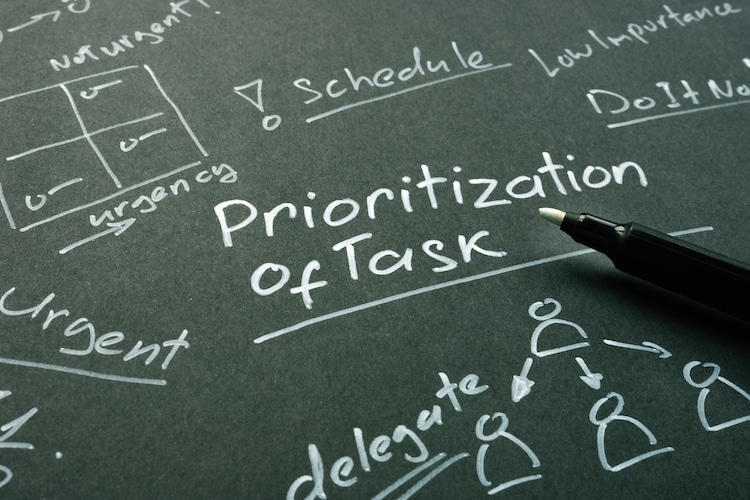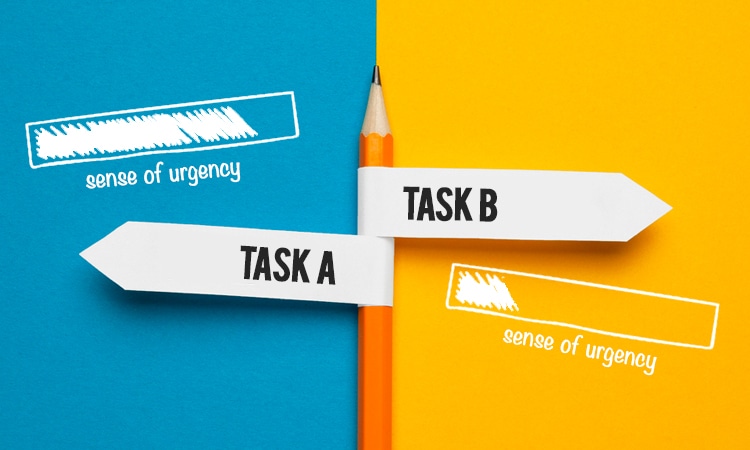Let’s get one thing straight. This article is by no means meant to discourage you from giving your best. Consistent hard work is key to success, after all.
However, we are human beings with finite energy, focus, and time. There will always be times when it won’t be possible to give our best efforts to EVERYTHING we have going on.
And this is where perfectionism can get toxic. It’s one thing to ensure that each customer gets the best experience possible. It’s another to agonise over the wording of each standard reply for hours. Between those two, which endeavour do you think will bring you closer to your goals?
Done Is Better Than Perfect

We’ve all heard this adage before, and with good reason. There’s never going to be a perfect time and the circumstances will always be less than ideal somehow. If you keep waiting on those things, you’ll end up getting nothing done.
Let’s take it a step further. What you get done is more important than how much you get done. Why waste time, energy, and headspace on a million less significant tasks when you can channel that much effort into getting a few important things right?
For example, instead of micromanaging every little decision your team makes everyday, why not delegate them accordingly? If you hired the right people and trained them well, they shouldn’t have to run to you each time they hit a roadblock.
When you acknowledge how freeing giving up certain decision-making responsibilities can be, you’ll also realise that you can get more things done – faster AND more efficiently. This will also allow you to make use of YOUR time and talents where they’re needed the most – taking your company to new heights.
How to Avoid The Perfectionism Trap
Here are some concrete steps you can take to avoid getting tripped up by perfectionist impulses:
1.) Classify decisions based on their significance and impact.

Will your decision have huge consequences? Would those consequences be irreversible? Those are the only two questions you need to ask yourself to determine how to decide.
Decide on the spot if something is both inconsequential and irreversible (i.e., what to have for lunch). Delegate inconsequential and reversible decisions, like the font style and color on your website.
For consequential and reversible decisions, decide and then pivot as needed. Save your mental energy for the consequential and irreversible decisions instead.
2.) Reflect on the costs of needless outperformance – and determine what’s behind your compunction to do so.

Going the extra mile can differentiate you from your competitors. However, knowing when to do that is also important.
For example, doing everything you can to resolve a customer’s urgent problem is great. Pushing yourself to reply to their non-urgent email when you’ve got other pressing matters to attend to is not.
While you’re at it, think about what you’re giving up whenever you insist on overdelivering unnecessarily. Does it eat away at your time and energy for yourself? Your relationships? Quality time with your family?
Consider why you constantly feel the need to over perform as well. Do you struggle with impostor syndrome? Are you imagining the worst case scenarios for every little thing? Once you identify the root cause, figure out the best course-correcting behaviours – and commit to them when such situations arise.
3.) Regularly review your habits -even the good ones- to see if they’re still the best use of your time and energy.

Consistency is awesome, but flexibility happens to be a hallmark of good psychological health. Understanding when you might need to take the day off and recharge, even if it means breaking a streak, is healthy. As is shifting away from habits that were once important to your productivity and skills development – but no longer serve you.
Don’t worry. This doesn’t mean you should permanently stifle your inner perfectionist. You just need to know when to unleash him/her. For instance, when it comes to matters involving the direction of your business or your core product or service, go ahead and knock yourself out.
For everything else, delegate. Or better yet, outsource.
Remote Staff has had more than ten years of experience in helping various business owners Down Under scale their operations by matching them with top Filipino talent who can take tedious yet necessary tasks out of their hands, all so they can focus their energies on more important things.
Give us a call today or schedule a callback so we can help you get started.
Serena has been working remotely and writing content for the better part of the last decade. To date, she's written for Pepper.ph and Mabuhay Magazine, among others, and has churned out more than a thousand articles on everything from The Basics of Stock Market Investing to How to Make Milk Tea-Flavored Taho at home. Hermits, aspiring hermits, and non-hermits with interesting project propositions may email her at serena.estrella10@gmail.com.
























 Zero Recruitment Fee
Zero Recruitment Fee